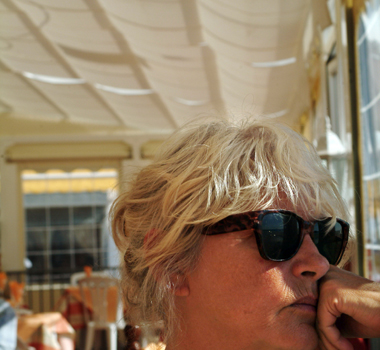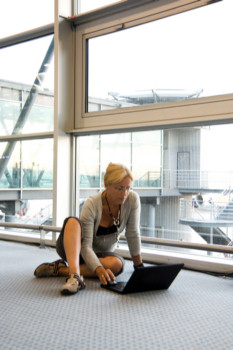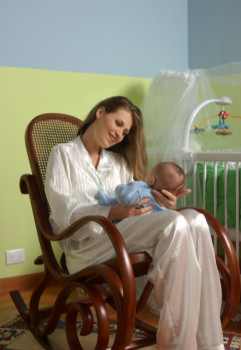CORE WORDS
Tanaka6000
COMPOUND WORDS
5000 WORDS
situation P1380
PHRASES
PHRASES
Cô ấy đang viết một sáng tác .           | |||||||||||||||||||||||||||||||||||||||||||||||||||||||||||||||||||||||||||||||||||||||||||||||||||||||||||||||||||||||||||||
Mọi người đang ngồi vào bàn .           | |||||||||||||||||||||||||||||||||||||||||||||||||||||||||||||||||||||||||||||||||||||||||||||||||||||||||||||||||||||||||||||
Không có nghĩa là đối lập .           | |||||||||||||||||||||||||||||||||||||||||||||||||||||||||||||||||||||||||||||||||||||||||||||||||||||||||||||||||||||||||||||
Chỉ có một đoạn của bố cục đã được viết .           | |||||||||||||||||||||||||||||||||||||||||||||||||||||||||||||||||||||||||||||||||||||||||||||||||||||||||||||||||||||||||||||
Vị trí của cô ấy là quản lý bộ phận .           | |||||||||||||||||||||||||||||||||||||||||||||||||||||||||||||||||||||||||||||||||||||||||||||||||||||||||||||||||||||||||||||
Anh ấy đang ngồi trên bậc thềm, đọc sách .           | |||||||||||||||||||||||||||||||||||||||||||||||||||||||||||||||||||||||||||||||||||||||||||||||||||||||||||||||||||||||||||||
Cô ấy đang ứng tuyển vào một công ty nổi tiếng .           | |||||||||||||||||||||||||||||||||||||||||||||||||||||||||||||||||||||||||||||||||||||||||||||||||||||||||||||||||||||||||||||
Họ đang nghiên cứu tình hình hiện tại .           | |||||||||||||||||||||||||||||||||||||||||||||||||||||||||||||||||||||||||||||||||||||||||||||||||||||||||||||||||||||||||||||
Trên cơ thể chó mèo có rất nhiều ký sinh trùng .           | |||||||||||||||||||||||||||||||||||||||||||||||||||||||||||||||||||||||||||||||||||||||||||||||||||||||||||||||||||||||||||||
Tôi đang trở về nước để thăm người thân và bạn bè .           | |||||||||||||||||||||||||||||||||||||||||||||||||||||||||||||||||||||||||||||||||||||||||||||||||||||||||||||||||||||||||||||
Họ đang ngồi trước cửa nhà .           | |||||||||||||||||||||||||||||||||||||||||||||||||||||||||||||||||||||||||||||||||||||||||||||||||||||||||||||||||||||||||||||
Chó có chiếc mũi rất nhạy cảm .           | |||||||||||||||||||||||||||||||||||||||||||||||||||||||||||||||||||||||||||||||||||||||||||||||||||||||||||||||||||||||||||||
Tôi sắp về nước để thăm người thân và bạn bè .           | |||||||||||||||||||||||||||||||||||||||||||||||||||||||||||||||||||||||||||||||||||||||||||||||||||||||||||||||||||||||||||||
Có rất nhiều di tích lịch sử ở Ai Cập .           | |||||||||||||||||||||||||||||||||||||||||||||||||||||||||||||||||||||||||||||||||||||||||||||||||||||||||||||||||||||||||||||
Cô ấy đang ngồi dưới mái hiên .           | |||||||||||||||||||||||||||||||||||||||||||||||||||||||||||||||||||||||||||||||||||||||||||||||||||||||||||||||||||||||||||||
Họ đang về quê thăm người thân trong gia đình .           | |||||||||||||||||||||||||||||||||||||||||||||||||||||||||||||||||||||||||||||||||||||||||||||||||||||||||||||||||||||||||||||
Cô ấy đang ngồi bên cửa sổ .           | |||||||||||||||||||||||||||||||||||||||||||||||||||||||||||||||||||||||||||||||||||||||||||||||||||||||||||||||||||||||||||||
Tôi sẽ đến thăm giáo viên của tôi .           | |||||||||||||||||||||||||||||||||||||||||||||||||||||||||||||||||||||||||||||||||||||||||||||||||||||||||||||||||||||||||||||
Anh ấy đang ngồi ở rìa vách đá .           | |||||||||||||||||||||||||||||||||||||||||||||||||||||||||||||||||||||||||||||||||||||||||||||||||||||||||||||||||||||||||||||
Giáo viên yêu cầu trẻ đọc to tác phẩm của mình .           | |||||||||||||||||||||||||||||||||||||||||||||||||||||||||||||||||||||||||||||||||||||||||||||||||||||||||||||||||||||||||||||
Béo phì có thể gây ra hàng loạt bệnh tật .           | |||||||||||||||||||||||||||||||||||||||||||||||||||||||||||||||||||||||||||||||||||||||||||||||||||||||||||||||||||||||||||||
Hôm nay chúng ta sẽ đi thăm Vạn Lý Trường Thành .           | |||||||||||||||||||||||||||||||||||||||||||||||||||||||||||||||||||||||||||||||||||||||||||||||||||||||||||||||||||||||||||||
Da của em bé rất mỏng manh .           | |||||||||||||||||||||||||||||||||||||||||||||||||||||||||||||||||||||||||||||||||||||||||||||||||||||||||||||||||||||||||||||
Lực lượng cứu hỏa đã đến hiện trường để giải cứu nạn nhân .           | |||||||||||||||||||||||||||||||||||||||||||||||||||||||||||||||||||||||||||||||||||||||||||||||||||||||||||||||||||||||||||||
Đây là cơ sở cũ của Đại học Yenching .           | |||||||||||||||||||||||||||||||||||||||||||||||||||||||||||||||||||||||||||||||||||||||||||||||||||||||||||||||||||||||||||||
Mẹ tôi đang ngồi trên ghế xích đu .           | |||||||||||||||||||||||||||||||||||||||||||||||||||||||||||||||||||||||||||||||||||||||||||||||||||||||||||||||||||||||||||||
Họ đang đắn đo không biết nên mua đôi giày nào .           | |||||||||||||||||||||||||||||||||||||||||||||||||||||||||||||||||||||||||||||||||||||||||||||||||||||||||||||||||||||||||||||
Anh ấy đang ngồi trên một tảng đá .           | |||||||||||||||||||||||||||||||||||||||||||||||||||||||||||||||||||||||||||||||||||||||||||||||||||||||||||||||||||||||||||||
Tình hình lũ lụt nghiêm trọng .           | |||||||||||||||||||||||||||||||||||||||||||||||||||||||||||||||||||||||||||||||||||||||||||||||||||||||||||||||||||||||||||||
Cô ấy đang tấn công vào tình hình chính trị hiện tại .           | |||||||||||||||||||||||||||||||||||||||||||||||||||||||||||||||||||||||||||||||||||||||||||||||||||||||||||||||||||||||||||||
Are you going to visit any other countries ? | Bạn sẽ đến thăm bất kỳ nước nào khác? | Go and sit by your father . | Đi và ngồi bên cha của bạn.
Did you enjoy your visit ? Bạn có tận hưởng chuyến thăm của bạn?
My father has visited london many times . Cha tôi đã đến thăm Luân Đôn nhiều lần.
Put yourself in my position . Hãy đặt mình vào vị trí của tôi.
I paid him a visit yesterday . Tôi đã đến thăm anh ấy ngày hôm qua.
His english composition has few , if any , mistakes . Phần sáng tác tiếng Anh của anh ấy có rất ít lỗi, nếu có.
It was this hospital which I visited last month . Đó là bệnh viện này mà tôi đã đến thăm vào tháng trước.
I'll look you up when I visit new york . Tôi sẽ tìm bạn khi tôi đến thăm New York.
I visit my friend's house at intervals . Tôi ghé thăm nhà của bạn tôi trong khoảng thời gian.
You should prepare a room for the visitor . Bạn nên chuẩn bị một phòng cho khách.
We visited the museum last week . Chúng tôi đã đến thăm bảo tàng tuần trước.
While she was staying in japan , she often visited kyoto . Trong khi cô ấy ở Nhật Bản, cô ấy thường đến thăm Kyoto.
Which city are you going to visit first ? Thành phố nào bạn sẽ đến thăm đầu tiên?
The situation is better , if anything . Tình hình là tốt hơn, nếu bất cứ điều gì.
He sits up studying till late at night . Anh ngồi học đến tận khuya.
Thank you for taking the time out to pay a visit to our company . Cảm ơn bạn đã dành thời gian để thăm công ty chúng tôi.
I motioned for her to sit down . Tôi ra hiệu cho cô ấy ngồi xuống.
It was this hospital which I visited last month . Đó là bệnh viện này mà tôi đã đến thăm vào tháng trước.
They visit us from time to time . Họ đến thăm chúng tôi theo thời gian.
She visits us every other day . Cô ấy đến thăm chúng tôi mỗi ngày.
He's studying history at university . Anh ấy đang học lịch sử ở trường đại học.
I visited rome for the first time in my life . Tôi đến thăm Rome lần đầu tiên trong đời.
Sit down and take it easy for a while . Ngồi xuống và thư giãn một lúc.
Have you finished writing your composition ? Bạn đã hoàn thành bài viết của bạn?
He visited italy before . Anh ấy đã đến thăm Ý trước đây.
Can't you sit the story out for a while ? Bạn không thể ngồi ngoài câu chuyện một lúc?
A visitor has kept me busy till now . Một vị khách đã khiến tôi bận rộn cho đến bây giờ.
Your composition is the best yet . Thành phần của bạn là tốt nhất chưa.
Don't sit up till late . Đừng ngồi đến khuya.
He was unaware of the situation . Anh ta không biết về tình hình.
There was no choice but to sit and wait . Không còn cách nào khác là ngồi chờ.
There are many places to visit in kyoto . Có rất nhiều nơi để tham quan ở Kyoto.
If I were in your situation , I would do the same thing . Nếu tôi ở trong hoàn cảnh của bạn, tôi cũng sẽ làm điều tương tự.
Mary is sitting at the desk . Mary đang ngồi ở bàn làm việc.
What are the visiting hours ? Giờ thăm là gì?
I visited him once in a while . Tôi đã đến thăm anh ấy một lần trong một thời gian.
We understand the necessity of studying . Chúng tôi hiểu sự cần thiết của việc học.
The exhibition is well worth a visit . Triển lãm rất đáng để tham quan.
The french president is to visit japan next month . Tổng thống Pháp sẽ đến thăm Nhật Bản vào tháng tới.
She is visiting paris . Cô ấy đang đi thăm Paris.
Sit down , please . Mời ngồi.
The english of this composition is too good . Tiếng Anh của tác phẩm này là quá tốt.
He is all curiosity . Anh ấy là tất cả sự tò mò.
A quiet place to sit and rest would be nice . Một nơi yên tĩnh để ngồi và nghỉ ngơi sẽ rất tuyệt.
Have you ever visited rome ? Bạn đã bao giờ đến thăm Rome chưa?
On finishing university , I started working right away . Tốt nghiệp đại học, tôi bắt tay ngay vào công việc.
I have visited kyoto three times . Tôi đã đến thăm Kyoto ba lần.
You have only to sit here . Bạn chỉ cần ngồi ở đây.
They always sit up late doing their homework . Họ luôn thức khuya làm bài tập về nhà.
May I sit down ? Tôi ngồi được không?
Don't hesitate to ask if you want anything . Đừng ngần ngại hỏi nếu bạn muốn bất cứ điều gì.
My sister goes to a university . Em gái tôi đi đến một trường đại học.
The doctor she visited is famous . Bác sĩ mà cô ấy đến thăm là người nổi tiếng.
Sit down and rest for a while . Ngồi xuống và nghỉ ngơi một lúc.
I visit the city yearly . Tôi đến thăm thành phố hàng năm.
He is very sensitive to cold . Anh ấy rất nhạy cảm với lạnh.
This is the castle which we visited last week . Đây là lâu đài mà chúng tôi đã đến thăm tuần trước.
Please visit us at your convenience . Hãy ghé thăm chúng tôi một cách thuận tiện.
I make it a rule not to sit up late . Tôi đặt ra một quy tắc là không thức khuya.
I don't like visiting big cities . Tôi không thích đến thăm các thành phố lớn.
He paid a visit to his friend . Anh ấy đã đến thăm người bạn của mình.
She is accustomed to sitting . Cô đã quen với việc ngồi. |





























